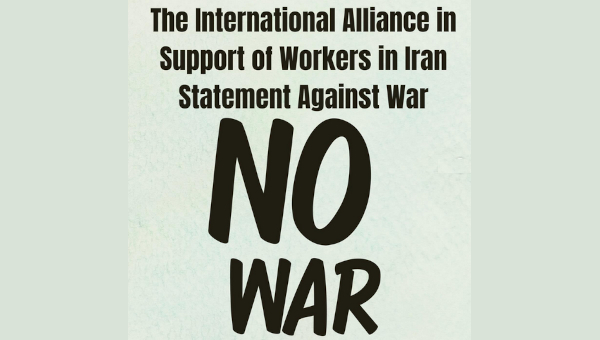From International Campaign for Human Rights in Iran (via SB News).
Students Held in Incommunicado Detention Are At Risk of Torture
(4 April 2009) The Iranian government should immediately and unconditionally release all detained students the International Campaign for Human Rights in Iran said today. The students are being held in incommunicado detention in Tehran, Rejaee Shahr and Isfahan. The Campaign is seriously concerned for their safety and high risk of torture.
On 23 February 2009, the Amir Kabir University campus was violently attacked by government forces. Students were protesting the burial of “unknown martyrs” on their campus. The following day, 24 February 2009, security agents attacked the homes of four Amir Kabir students, Ahmad Ghasaban, Nariman Mostafavi, Mehdi Mashayekhi and Abbas Hakimzadeh. All four were detained. Previously, on 5 February 2009, four other Amir Kabir University students were detained. Majid Tavakoli, Hossein Torkashvand, Esmael Salmanpour and Koursh Daneshyar were arrested for participating in a ceremony to honor Mehdi Bazargan, the first Prime Minister of the Islamic Republic. The eight students are all being held in Evin Prison in Tehran.
In an interview with the Iranian Student News Agency (ISNA) on 6 March 2009, Judge Hadad, the Deputy of the Security Prosecution Court, was asked about the situation of the four students arrested on 24 February. He said, “We have been after these people for a long time. This group planned and implemented radical student actions and they disseminated and published false information in Amir Kabir News. They were also being interviewed by radio services abroad. This group of students conducted the majority of these activities.”
“It is a violation of due process to announce charges against detainees publicly while their attorneys have not been allowed to visit them or even read their files,” Hadi Ghaemi, the Campaign’s spokesperson, said.
“The students’ colleagues and family are seriously concerned they are being tortured to make false confessions. Any confessions obtained under such circumstances should be impermissible by any court,” he added.
Brief phone conversations of the eight students with their families indicate they are likely being tortured. Some of the students, including Hakimzadeh and Torkashvand, have not been allowed to contact their families at all. Hakimzadeh is also critically ill and requires special medical treatment. Any effort by family members and attorneys to visit the students and ask for their release has had no effect.
Security and judiciary forces have not stopped at targeting students. During New Year Celebrations, family and friends of the detained students gathered in front of Evin Prison to show their support. The gathering led to the detention of Bahareh Hedayat, Milad Asadi, Mehdi Arabshahi, Majid Dari, Saeed Fayzolahzadeh, Hamed Azizi, Nariman Mostafavi’s mother and Milad Asadi’s parents. Following these detentions, Farid Hashemi and Amin Nazari, members of the Office to Foster Unity (Daftar e Tahkim Vahdat) were arrested when they went to the security office to ask for the release their colleagues. All these detainees were held in Darabad Police Station and ill-treated, causing Judge Matteen Rasekh to issue an apology. The detainees were released over the course of three days, with the last being released on 23 March 2009.
The Campaign has consistently reported on the relentless surveillance and targeting of university students. A report issued on National Student Day in November 2008 included an alert on surveillance of Majid Tavakoli. For the past three years, Tavakoli and three other students have been the subject of an anti-Islamic defamation case, even though the prosecution hasn’t met Iranian and international standards of fair trials. The three accused students in the case, including Tavakoli, spent 15 months in jail under severe pressure, ill treatment and torture despite the fact that they weren’t found guilty by a court. After their release, not only were they denied the opportunity to continue their studies, but their daily lives were monitored constantly by security forces. In a short phone call to his family, Tavakoli told them that he is still being interrogated with regard to this case.
Regarding the arrest of Tavakoli and others on 5 February, Judge Hadad told ISNA, “Seven people were arrested in the illegal ceremony to honor Bazargan. All of them have records and one of them is Majid Tavakoli, who is the main accused in the anti Islam defamation case at Amir Kabir University. These people were being monitored and pursued by security and judiciary forces for some time.”
“The surveillance and detentions of innocent students is not justifiable and the words of Judge Hadad once again show that the Iranian Judiciary works in concert with the Intelligence Ministry,” Ghaemi said. “Hadad is the presiding judge and should make clear under which laws and regulations students can be followed and arrested without judicial warrants and without being formally charged,” he added.
[...]
The International Campaign for Human Rights in Iran has previously expressed its deep concern about Madadzadeh’s health and safety. Last year in a similar situation, a group of students faced the same charge. One of them, Ibrahim Lotfolahi, died under suspicious circumstances. Two other students, charged with “acting on behalf of political opposition groups abroad,” were tortured to make false confessions. These confessions were used as evidence against them during their prosecution. The confessions led to an execution sentence for Habibolah Latifi and lengthy prison sentence for Yaser Goli.
[...]
The International Campaign for Human Rights in Iran, citing the Iranian government’s international obligations to respect the rights of students to freedom of association and freedom of expression, called for the immediate release of all detained students. The Campaign urged the Judiciary to investigate and prosecute officials who ordered and implemented these arbitrary detentions. The Campaign called on the international community and UN mechanisms, including the Special Rapporteur on Arbitrary Detentions and the Special Rapporteur on Torture, to condemn the wide range of student rights violations in Iran and remind Iranian authorities of their obligations under international treaties.
Read complete article here ...






No comments:
Post a Comment